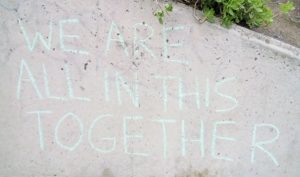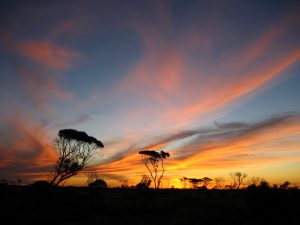The idea of being a renter can be applied to our communities at large. Even if you have a piece of paper backed by a human constructed legal and law enforcement system that says you own something, whatever it is, you’re actually renting it from future generations.
Being a renter can give you a unique perspective on shaping the community for the better; you know that you don’t own what gives you shelter and a place to live in and that you can’t stay there forever.
Home ownership may give people a sense of “a home forever”, yet in reality, it’s only around 50-70 years at best which is a blink of an eye in historical terms. If the current estimated age of the earth was compressed into an 80 year human lifespan, 50 years of home ownership would be around just 30 seconds of that life.

Wouldn’t it be better to see our world as something we’re renting from future generations who can enjoy it long after we’re gone? Let’s apply this principle to the community outside of our walls:
- Ownership is something that we take for granted in most of the world today, yet it is not a natural law, it is something that has been formulated by a select group of humans.
- There are cultures that share or have shared common areas, tools and the like for the greater good of the community. Ownership was a community driven concept.
- In some cultures, it was (and still is) common practice for people to be given specific roles to protect and nurture certain areas for the benefit of future generations.
- Colonialisation began a centuries long process where land and people were stolen on an industrial scale to concentrate wealth into the hands of a select few and its effects are still with us today.
- Individual and shareholder ownership in regions where it is heavily championed have continued this process by enabling individuals and groups of elites to plunder natural resources at the expense of the greater community.
- Where state based ownership of major enterprises has been championed, the track record has not always been better.
- We are not against individual ownership per se, especially at a household level where it can grant people a sense of security and permanence in their community.
- At a larger level, the looming ecological, economic and health crises demonstrate a small privileged minority of people can own large swathes of property, plunder it, destroy its value and turn a tidy profit whilst leaving local communities in tatters.

If some of our wealthiest companies, individuals or government bodies were on a rental contract with our future generations as the landlord, they would have been thrown out after the first inspection.
We need to reverse this trend:
- We need a paradigm shift towards the most localised form of ownership where practical and to embed the idea that ownership comes with greater responsibility.
- This is not to blame people for being born into privilege (or vice-versa) provided they are willing to help rebalance the scales of justice and not just tip it further their way.
- If you are one of these lucky 20% in the world who have the ability to use 80% of the resources (for many people in the world’s most economically developed countries including us), you are part of this privileged group and can help to rebalance the scales.
Shaping the community to reflect the philosophy of a good tenant renting from our future generations is no small feat which is why we are going to unpack this further in a series of articles call “Shaping the community”.
It’s time to take a long view and rethink our relationship with nature, objects, animals and people. We don’t own any of these; they are a part of our lives until they pass from us to future generations.